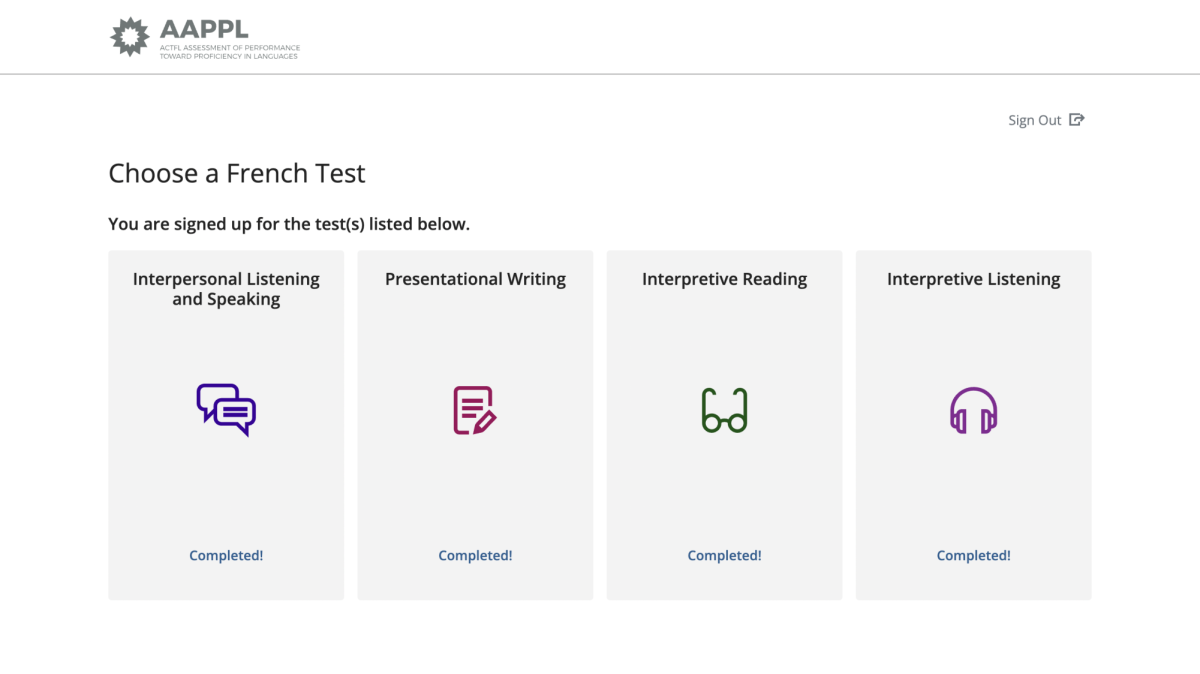The language proficiency test, Assessment of Performance toward Proficiency in Languages (AAPPL), is being administered this month to language students currently enrolled in French, Spanish, and Mandarin. The assessment consists of four sections: interpretive reading, presentational writing, interpretive listening, and interpersonal speaking. While AAPPL testing attempts to measure one’s aptitude in a language, it is unnecessary due to its many flaws, and unproductive measurement of one’s proficiency.
This two and a half hour assessment spills over into several class periods, which adds immense pressure to students that study for AAPPL. Further, the test is also too close to the end of the school year, when students are already overwhelmed with SOL, AP, and IB tests. AAPPL analyzes the level of proficiency of a student, which is unhelpful to the individual, as there is little time to improve with the end of the school year drawing near.
To compound this stress, many students did not learn about this test taking place until only a few weeks before it was administered. Further, the test is a summative grade, which adds additional stress for students as their year-long grade has a greater range of possible fluctuation. SOL tests are not summative grades, so why is a test such as AAPPL?
Another negative aspect of the test is the flawed demo they provide. Demo tests are usually helpful as the test taker gets an idea on areas of improvement, based on the score they receive. However, AAPPL fails to inform students of their score. This takes away from the purpose of the test, as students do not know what questions they got correct, and where they need to improve.
In my experience, the speaking portion of AAPPL is particularly difficult. You listen to a video once and only have seven seconds to replay the video once. After hearing the audio, the microphone will automatically start recording and will not pause. This automatic start to the microphone adds pressure to start speaking early. This does not even model a real speaking assessment, because if a teacher was asking a question, students have a second to think before speaking.
“The speaking portion is ineffective because I can’t pause to think about what I’m going to say.” Freshman Ella Ryason explained. “We only have 7 seconds to replay the video once, so I’m not able to give my best performance because I’m so rushed.”
Many students are also unhappy with the exam, especially since the entire test is online.
“I’m not a fan of AAPPL because I personally find it hard to do listening and speaking,” Freshman Bridget Creed noted, “Doing it on a laptop for a grade makes it even harder.”
AAPPL testing is a stressful and unnecessary process that puts extra pressure on students. While there are some advantages, it does not effectively demonstrate the student’s proficiency in a language. There is no need for this test to continue.










